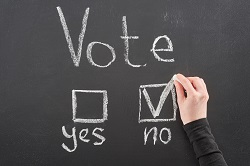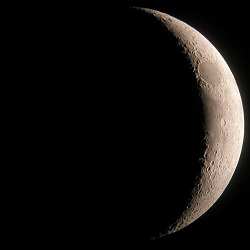By Syed Abul A‘la Maududi (RA)
THE following article was published in Tarjuman al-Qur’an (Urdu Monthly Magazine), Muharram 1365 Hijri (December 1945), and later included in the book Tehreek-e-Azadi-e-Hind aur Musalman, Volume 2 (Page 233, 1983 Edition, Islamic Publications, Lahore). It's important to note that this was during British rule in India, and the question was asked in the context of participating in elections under a liberal democratic system similar to today's.
It should also be noted that Maulana Maududi allowed joining the Legislative Assembly in Pakistan only after, in his words, “the Constitution of Pakistan had recited the Kalimah (Declaration of Faith)” and the Objectives Resolution of Pakistan had become part of the Islamic Constitution. Whether or not Pakistan truly acted upon that declaration, and whether Jamaat-e-Islami's decision to participate in elections was correct or not, is a separate debate.
Maulana Maududi (RA) never said that just because Pakistan’s Constitution accepted the Kalimah, now the constitutions of India, Western countries, Canada, and the U.S. have also accepted Islam. He never claimed that you can now freely take part in elections there because liberals, democrats, republicans, and conservatives have abandoned their political ideologies and accepted Islam.
He didn’t say that contesting elections there is now both your civic and religious duty. If in Canada, your fellow countrymen aren’t fulfilling their civic duty (only about 43.5% vote), and Canadians see voting as a secular duty rather than a religious one and therefore avoid it, then you should explain to them that they are mistaken. According to our understanding, it is a pure religious (Islamic) responsibility they are failing to fulfill.
I write about this kind of absurd thinking because we have such confused individuals both in our Islamic circles and among religious scholars.
Now let’s look at the question asked to Maulana Maududi, and his reply.
— Jawed Anwar
Question:
"Is it permissible for a Muslim, purely as a Muslim, to become a member of the assembly or not? If not, why? Here, representatives from two major Muslim parties are running for assembly membership, and I am under pressure to vote for them—even some Islamic scholars are demanding it. Though I generally know that an assembly based on the idea of human sovereignty is not permissible in Islam, I find it hard to escape the pressure to vote unless I can explain solid reasons."
Answer:
About assemblies: understand that all the democratic systems of the modern world (and the current Indian assemblies are part of this) are based on the idea that citizens of a country have the right to decide principles of life—social, political, economic, moral—and make detailed laws accordingly. They believe there’s no need for any authority above public opinion for legislation.
This belief directly contradicts the Islamic belief.
In Islam, the central part of Tawheed (belief in the Oneness of God) is that Allah is the Owner and Ruler of all people and the entire world. Giving guidance and making laws is His job, and our job is to follow His guidance and laws. Even when we use our freedom of opinion, it must stay within the limits set by Allah.
So, according to this belief, the source of law and reference point for all life matters is the Book of Allah and the Sunnah of His Messenger ﷺ. To accept any system other than this—like modern democracy—is to deviate from the belief in Tawheed.
That’s why we say: membership in assemblies and parliaments based on modern democratic principles is haram (forbidden). Because by voting, you are selecting someone whose job—under the current system—is to make laws that go against the belief in the Oneness of God. If any scholar considers this permissible, ask him for proof.
You can’t justify something forbidden just by saying, “This system is already in place, and everything in life depends on it. If we don’t participate in elections or try to join the government, we’ll suffer losses.” These types of reasons can't turn something haram into halal. Otherwise, any forbidden thing could be made lawful by calling it a “necessity.”
Yes, Islam does allow certain forbidden things in cases of real necessity (idtirar). But that doesn’t mean you can neglect your duties, create emergencies yourself through your own carelessness, and then use those emergencies as an excuse to make forbidden things lawful. And then, instead of ending those emergencies, you keep using them to justify more wrong actions.
The system currently ruling over Muslims is, in fact, the result of their own negligence. So instead of spending their efforts to change the system and establish a truly Islamic system, they are using this so-called emergency as an excuse to join and grow within the same un-Islamic system.
Note:
Isn’t this the exact same situation in North America? That here too, fake emergencies are being created to slowly declare all forbidden things as lawful? And there’s a long line of charming, favorite scholars helping to do this—giving fancy reasons to make haram things halal?
Let me ask you again: Will these scholars and muftis save you on the Day of Judgment?
Ask your conscience.
— Jawed Anwar







